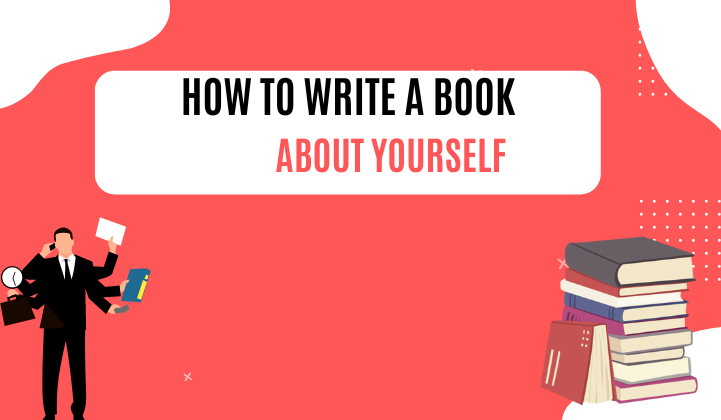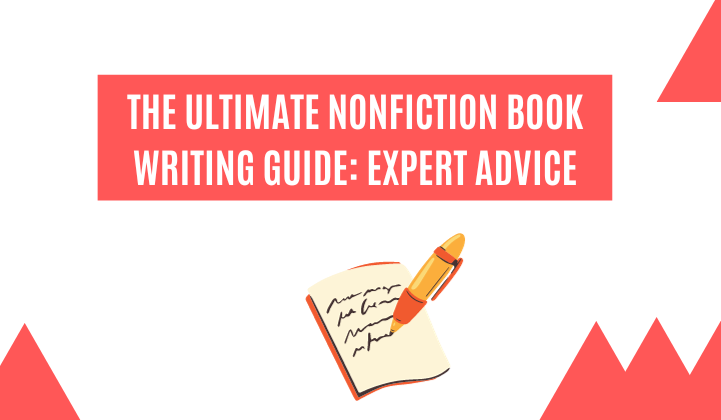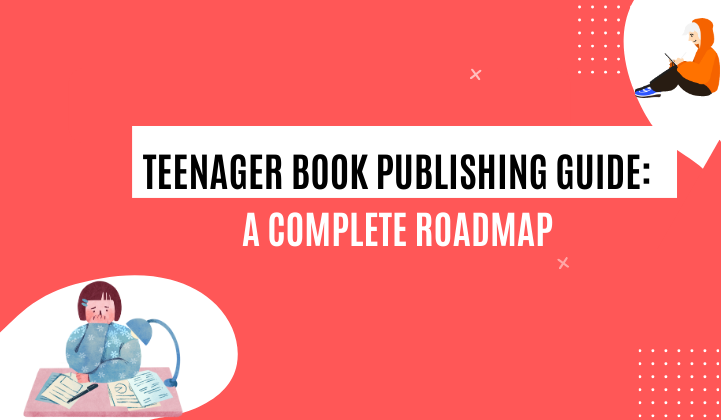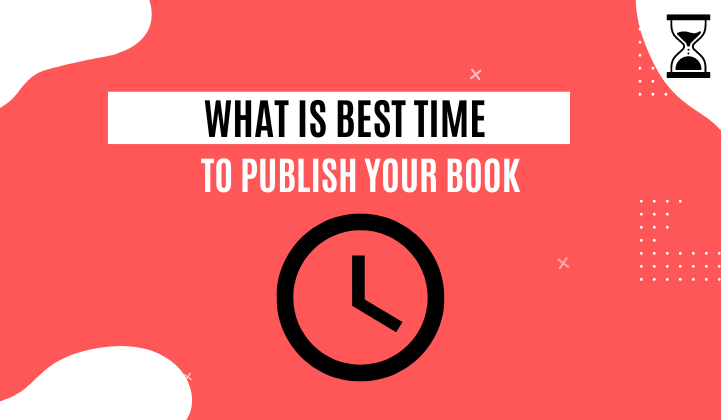How to Write a Book About Yourself
Everyone can tell a story. Many people have fantastic life experiences they want to share with the world, whether they involve traveling the world, dancing with movie stars, or raising beautiful families. A potent and satisfying approach to looking back on and preserving some of the most significant events in your life is to write a book about yourself.
But writing a book about yourself must be more than safe. You must be able to weave a story out of your experience. This necessitates the creation of a suspenseful, intriguing, and realistic book.
This article is intended to teach you how to create and publish a book about yourself.
Also, read out – 5 Outstanding Tips For Writing Author’s Bio
What is the title of the book you wrote about yourself?
Let’s begin with the fundamentals. Both memoirs and autobiographies are types of books that describe the author’s life. Although there are some fundamental parallels and distinctions between these two styles, the main one is that they are both subjective, first-person recounts of actual occurrences.
Describe a memoir.
A memoir typically focuses on an incident or period in the author’s life. Your memoir might, for instance, center on your formative adolescence years or a life-altering experience. Non-famous people frequently write memoirs about extraordinary events.
Describe the autobiography.
In an autobiography, the author often describes their entire life up to when the book was written. Celebrities and other well-known people typically write autobiographies.
Describe a biography.
A biography is a narrative of a person’s life written by another person. There are authorized and unauthorized biographies. Authorized biographies have the support and blessing of the subject of the biography. Meanwhile, unofficial biographies rely on outside sources for their data.
How to Begin Writing a Life story book
It takes a long time to write a book. Although very gratifying, it can also be irritating, especially if you need help figuring out where to start. You can start creating a book about yourself using these four steps.
Ensure you are prepared: Be emotionally prepared for the experience; exploring your past may be thrilling, wonderful, and heartbreaking. Before organizing your autobiography or memoir, take some time for introspection.
Make a list of the life events you wish to include, and take some time to write about them while you make the list. This can help you remember things and arouse feelings, enabling you to write honestly and clearly.
Informing your loved ones that you are penning a book about yourself is crucial, especially if they will appear in the novel as recognizable characters. Before you begin writing, make sure you and the other party are on the same page because they could have some reservations about being included in the book.
Plan your narrative: If you have never written a book, outlining your memoir in advance might be helpful. Your story will have structure and pace if you use an outline to keep you on track. Planning your book puts you in a solid position to begin writing since the significance of these components cannot be overstated.
Also, read out – CHALLENGES WRITERS FACE AND HOW TO OVERCOME THEM
What to include in a book or autobiography?
You probably already know which significant events you want to mention in your autobiography. However, it would help if you took the time to arouse the reader’s curiosity and establish context, so you’ll also need to provide them with some background information on you.
Here are the top 5 elements that any autobiography and memoir must have:
Investigate the experiences that influenced you as a young person.: Your early years can assist your readers in comprehending the decisions you make and the emotions you experience later in life.
Significant life events: These experiences inspired you to write your autobiography or memoir, giving them the color and depth they merit. Write truthfully. Give readers information that will enable them to comprehend and picture the issue.
Also read out –
Information about the other characters in your novel: Your book’s real-life characters also need some background information. It’s crucial to consult your friends and family about the specifics you plan to include before publishing your book.
Despondent moments: Most stories are dull without a certain amount of loss or suffering. Therefore, it’s crucial to include times of failure or misery, even if you’re happy, prosperous, and successful. This broadens the reader’s understanding of you and makes it easier for them to relate to your story.
Your aspirations for the future: Your story doesn’t end when the book does. A rewarding method to wrap out your autobiography or memoir is with a message of hope.
Writing an introduction for a memoir or autobiography
Your autobiography should have an exciting opening that piques the reader’s interest and makes them want to read more. That implies that you don’t have to begin at the beginning of your life. It is wise to move on to a more critical occasion unless you had a remarkable birth.
It holds if you’re writing a memoir in particular. Your introduction should be related to the specific period or incident you are writing about in your memoir.
Remember that your beginning sets the stage for the remainder of your book, so make it snappy, pertinent, and engaging.
Writing advice for Memoirs and Autobiographies
Here are some helpful suggestions on how to write a professional autobiography or memoir, regardless of your book’s subject matter or voice.
Write in the first person. Use the pronouns “I” and “we” frequently in your book. This viewpoint is the standard for writing this nature and gives your work a subjective authority. Use the first person to make it clear to the reader that this is your tale.
Read other memoirs and autobiographies. You will better understand the conventions of autobiographical writing by reading published works comparable to the book you plan to write.
Do your homework. Even if you’re writing about your own experiences, it’s conceivable that you will only remember some of the specifics of each event you’re retelling. Before you publish your story, be sure all factual information, including dates, ages, and names, is accurate.
Write with the advantage of hindsight since you know things unknown to you when the events occurred. When you write honestly, you own any prior errors you may have made and support them with the knowledge you have today.
Be emotional when writing; you want your readers to know how you feel at each period of your life. To help your readers empathize with you, write about your feelings.
How to write someone else’s biography?
Although the structure of biographies and autobiographies is identical, they typically take completely diverse forms. Biographies are typically written in the third person rather than the first since they are written about someone other than the author. Because the author must recount their own experiences, biographies tend to rely more on facts than emotion.
While research is crucial while writing an autobiography, it’s much more crucial when writing a biography. Ensure all your facts are correct if you’re writing a book about someone else’s life. It entails reading and investigating several reports of the same incident to make sure your information has been verified. At best, inaccurate biographical information can damage your reputation; at worst, it could lead to libel claims. So be sure to research as much as possible if you intend to write a book about someone else.
How to release a biography?
It is infamously challenging to promote autobiographies and memoirs by previously unpublished authors to established publishers who are risk-averse. But that does not imply that you should give up before starting.
Self-publishing is a fantastic alternative for memoirists who haven’t been published before. You’ll get more royalties from a self-published book than a formally published one. Additionally, several self-publishing businesses out there may aid in putting your work in front of a larger audience.
Your autobiography or memoir’s marketing, printing, and sales will be your responsibility if you decide to self-publish. This allows you a lot more leeway regarding the content of your book and your pricing and marketing plans.
Also read out – 10 Best Tools for Writing a Book in 2023
Conclusion
It takes a lot of work to write a book about your life. It necessitates in-depth reflection and frequently demands sitting with some upsetting recollections.
However, it’s also a robust process. You’ll discover that you have insightful knowledge to impart to the world.
Concentrate on the themes, messages, and enduring truths as you start writing. These factors contribute to the value and reader enjoyment of memoirs and autobiographies.
And always remember that you have a tale worth telling.
For more information and help “contact us” or call at “7528874047”
Also, read out – 8 Easy Exercises to Improve Writing Skills that Works







